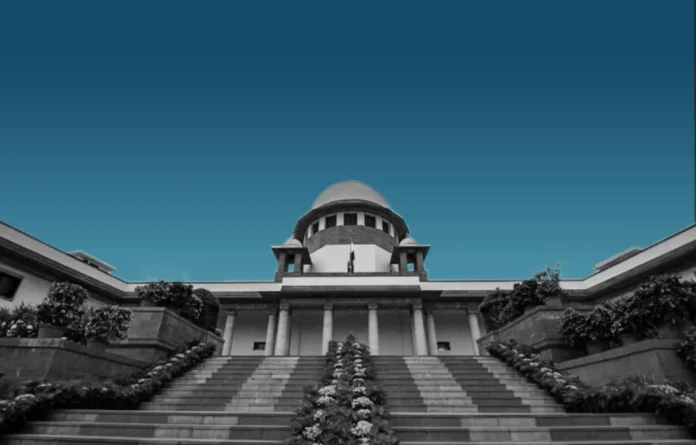Expressing serious concern over the rampant misuse of temporary employment contracts, the Supreme Court has directed government institutions and the public sector entities to uphold the principles of fairness and justice, and refrain from engaging in exploitative employment practices that eroded public trust.
The Bench of Justice Vikram Nath and Justice PB Varale observed on Friday that in the private sector, the rise of the gig economy had led to an increase in precarious employment arrangements, often characterised by lack of benefits, job security and fair treatment. Such practices have been criticised for exploiting workers and undermining labour standards.
When public sector entities engaged in misuse of temporary contracts, it not only mirrored the detrimental trends observed in the gig economy, but also set a concerning precedent that could erode public trust in governmental operations, it added.
Noting that government institutions and departments were entrusted with upholding the principles of fairness and justice, the Bench said they should lead by example and provide fair & stable employment without adhering to any discriminatory approach.
By ensuring fair employment practices, the government institutions could reduce the burden of unnecessary litigation, promote job security, and uphold the principles of justice & fairness that they are meant to embody, noted the Court.
Noting that the foundational purpose of temporary contracts may initially have been to address short-term or seasonal needs, the top court of the country said they have just increasingly become a mechanism to evade long-term obligations owed to employees.
It further observed that engaging workers on a temporary basis for extended periods, especially when their roles were integral to the organisation’s functioning, not only contravened international labour standards, but also exposed the organisation to legal challenges and undermines employee morale.
As per the case, the appellants were engaged by the Central Water Commission (CWC) on part-time, ad-hoc terms.
Out of these, three appellants were appointed as Safaiwala in 1993, 1998 and 1999 respectively while a fourth was appointed as a Khallasi in 2004.
Their responsibilities included cleaning, maintaining office premises and performing essential housekeeping and support functions crucial to the smooth operation of the CWC.
The appellants filed an Original Application before the Central Administrative Tribunal (CAT) in 2015, seeking regularisation of their services in the grounds that their roles had evolved beyond part-time or contractual labels and were integral to the CWC’s operations.
In April 2018, the Tribunal dismissed their application, stating that the appellants were not engaged in regular vacancies, had not completed sufficient full-time service, and did not meet the criteria for regularisation.
The appellants’ services were abruptly terminated on October 27, 2018, without any show-cause notice. Subsequently, they approached
They filed a petition in the Delhi High Court against the Tribunal order, while seeking reinstatement and regularisation. On August 8, 2023, the High Court also dismissed their plea. The appellants then moved the Supreme Court.
The Apex Court observed that the appellants had served for extensive periods, some exceeding two decades, performing essential duties that were integral to the daily functioning of CWC.
Their long and uninterrupted service for periods extending well beyond 10 years, could not be brushed aside merely by labelling their initial appointments as part-time or contractual.
Their engagement was not sporadic or temporary in nature; instead, it was recurrent, regular, and akin to the responsibilities typically associated with sanctioned posts. Moreover, the respondents did not engage any other personnel for these tasks during the appellants’ tenure, underscoring the indispensable nature of their work, it added.
Caling their termination as arbitrary and without any justification, the Bench said that the termination letters, issued without prior notice or explanation, violated fundamental principles of natural justice. In this case, the appellants were given no opportunity to be heard, nor were they provided any reasons for their dismissal, which followed nearly two decades of dedicated service,” it added.
Noting that even contractual employees were entitled to a fair hearing before adverse actions were taken against them, the top court of the country said that individuals with fewer years of service or similar roles had been regularised but not the appellants, thereby highlighting a lack of uniformity and potential discrimination in the treatment of the appellants compared to others.
It said the preferential treatment accorded to these individuals, despite their shorter service durations and no educational qualification, exemplified discriminatory behaviour and lack of uniformity in the respondent department’s approach. Such disparity violated the principles of equality enshrined in Articles 14 and 16 of the Constitution of India and cannot be sustained in law.
The Apex Court, while quashing the termination orders against the appellants, proceeded to direct the reinstatement of the appellants and immediate regularisation of their services.


